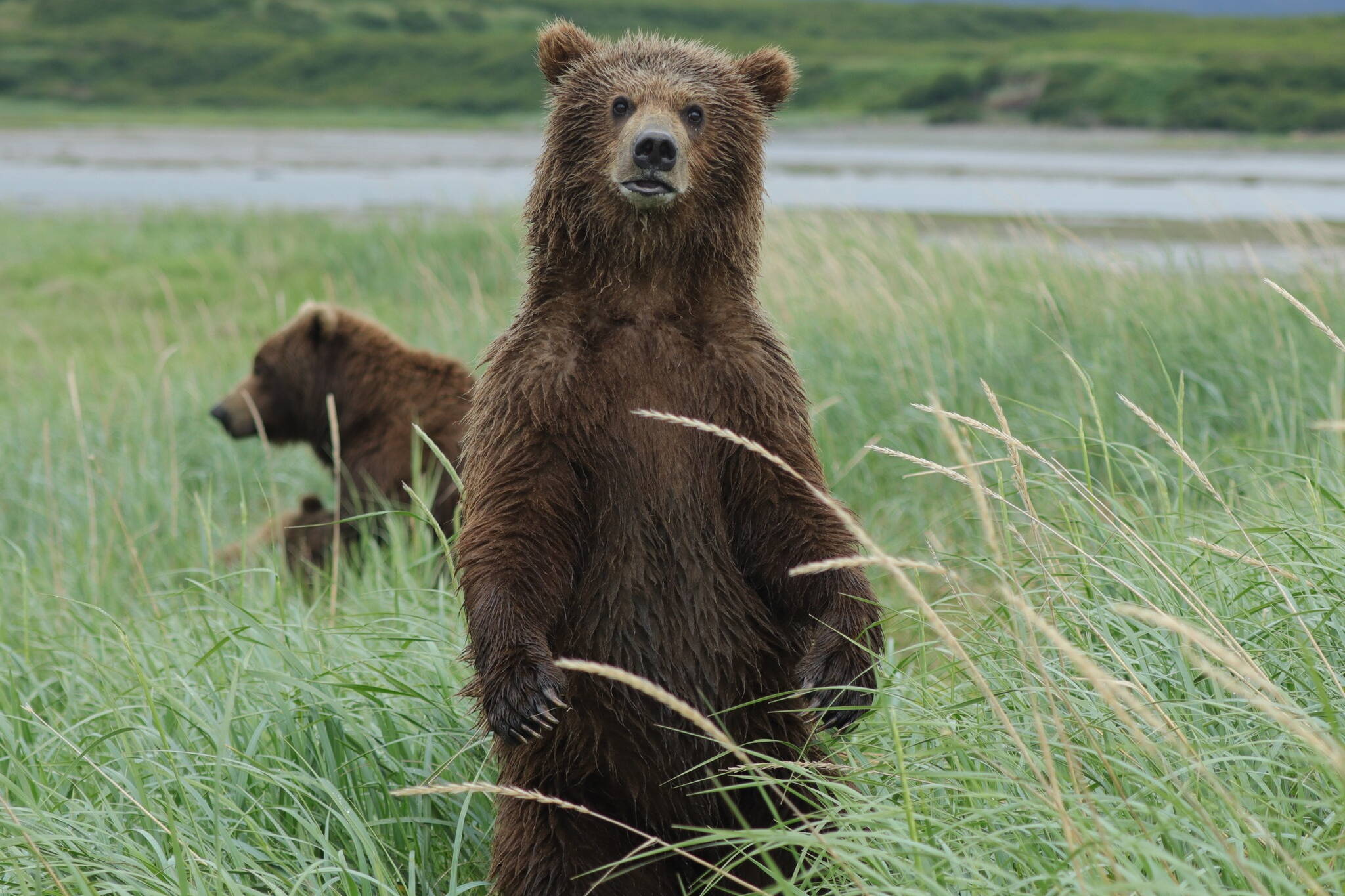I join the many Alaskans appalled by the revelation that state officials in planes and helicopters recently killed 94 brown bears (including 11 cubs), five black bears and five wolves to supposedly rebuild the Mulchatna caribou herd, which in the last 25 years has declined from 200,000 animals to 12,000.
This killing is unprecedented in scale in Alaska since statehood or anywhere else in modern America. Yet the kill, and the decision to do it, were done without public information, without allowing public comment, and without scientific support. It shouldn’t have happened and it mustn’t happen again.
At a Board of Game meeting in 2022 state biologists reported, after a year and one-half study, that there was no evidence that the ten-year wolf predator control program, after killing more than 450 wolves, had any effect on the Mulchatna caribou population decline and needed to be reconsidered.
Yet the published agenda for board action was to expand the existing wolf killing program for the Mulchatna herd to an adjacent federal wildlife refuge. During board discussion of that proposal they raised the possibility of expanding the wolf control program to include brown and black bears. After tabling the proposal, the board reconvened and unanimously passed a motion, developed with department leadership, to add brown and black bears to the predator control program. There was no substantive review by department biologists or even a bear survey of the area. The public was not allowed any chance to review or comment on this new kill program.
At the board’s meeting in March 2023 the Alaska Department of Fish and Game presented a predator control operational plan, based on the 2022 board action, with a kill program of an estimated 15 to 20 brown bears beginning in the early summer of 2023. The plan also included kill seasons to continue each year until 2028. The goal of the program was to “remove all bears” from the calving grounds. There was no biological study conducted on the bear population, no opportunity for public comment and virtually no public notice it was even happening. In just under a month the department shot, in seventeen days, almost one hundred bears from the air, five times the original estimate. And these “removals” will happen again, and again, and again for the next five years.
Sadly, Alaskans are faced with a “stacked deck” when a Board of Game, consisting of almost exclusively hunters and hunting guides, and the appointed leadership of the Department of Fish and Game have adopted a policy, without allowing public review or input and adequate science, that results in the potentially massive killing of our bears and wolves until 2028.
It doesn’t have to be this way. Everyday Alaskans can take control of changing the current stacked deck if we unite and exercise our rights. It’s time to stand our ground.
There are three steps that can begin to correct the shameful mismanagement that has occurred.
First, the Alaska Legislature should appoint an independent committee to investigate the Mulchatna massacres that includes former state and federal wildlife biologists and former public department officials, subsistence leaders, and public interest groups. Alaskans must have a full transparent accounting of the how, who, what, and why of the Mulchatna massacre. We need the truth — and the whole truth.
Second, we need a citizen initiative to enact a state law that establishes designated seats on the Board of Game to ensure a broad spectrum of Alaskans are represented. This will require a signature campaign to get this proposed law on the 2024 state ballot for voter approval. The designated seats on the Board of Game should consider hunters, subsistence users, hunting guides, non consumptive users, wildlife biologists and scientists, and tourism businesses. Game board membership today and for the last two decades has been non-representative. Hunters and hunting guides deserve a place on the board, of course, but a more broadly based membership is required to ensure fair representation of all wildlife stakeholders.
Third, the Legislature should commission a study by the National Academy of Sciences on predator control of wolves and bears in Alaska and provide recommendations on the role of biological science, habitat, disease, overhunting and predation in creating a sustainable and humane wildlife management system.
Alaska has more than 90% of all the brown bears in America. Viewing these magnificent animals — whether at Brooks Falls, McNeil River, Pack Creek or the numerous salmon streams and rivers across the state — is a special and unique experience for thousands of Alaskans and the millions of tourists.
Yet, Alaska officials in just two weeks killed 94 of these beautiful animals and they plan to keep it up for four more years. Alaskans and the rest of America deserves to know how this massacre happened, why it happened, and how we can make sure it never happens again.
Alaska’s true permanent fund is our wild lands and mountains, our open rivers and oceans, and the bountiful wildlife and fish that inhabit these treasures. It has given us an immeasurable wealth of economic, cultural, nutritional and spiritual benefits.
It’s our obligation is to protect and sustain these permanent fund treasures for future generations. That is our core environmental and conservation value. We must demand that our public officials measure up to this ideal.
• Tony Knowles was the governor of Alaska from 1994-2002 and chair of the National Park System Advisory Board from 2009-2016.

